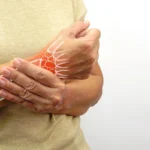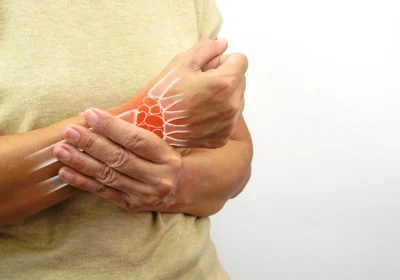
CAN CAVITIES SPREAD FROM ONE PERSON TO ANOTHER?
1. INTRODUCTION
During the COVID-19 pandemic, most people became more aware of how germs spread. But one thing that might surprise you is that cavities can also be contagious, just like catching a cold. Cavities can transfer from one person to another by saliva, but not through the air. Interestingly, for those using treatments like Invisalign, maintaining proper oral hygiene is especially important to prevent bacteria buildup. Let’s understand how this happens and how you can keep your loved ones safe from cavities.
2. WHAT ARE CAVITIES?
Cavities are holes in your teeth caused by tooth decay. This happens when harmful bacteria in your mouth produce acid. These acids eat away the outer layer of the tooth (called enamel). If not treated, the damage can reach the inner layer (called dentin), where nerves and blood vessels are located. The more sugar and acids you consume, the faster bacteria can create cavities.
3. HOW DO CAVITIES SPREAD?
Saliva contains bacteria, which are the cause of cavities. So, whenever saliva is shared between people, there’s a chance the bacteria can spread too. Here are some everyday situations where this can happen:
- Sharing a Toothbrush: Toothbrushes can hold bacteria from food, plaque, and even blood. When you use someone else’s toothbrush, you also take in the bacteria they’ve left behind—this increases your risk of tooth decay.
- Keeping Toothbrushes Too Close Together: Even if you clean your toothbrush daily, some germs remain. It is possible for bacteria to spread from one toothbrush to another when they are kept in close proximity to one another. Dentists recommend storing toothbrushes separately, standing upright, and uncovered so they dry properly. Also, change your toothbrush every 3–4 months.
- Kissing: Kissing involves the direct exchange of saliva, which can also pass along cavity-causing bacteria. If your partner has poor dental hygiene or untreated cavities, kissing could transfer these germs to your mouth.
- Sharing Utensils and Drinks: Using the same spoon, fork, straw, or glass as someone else is another way saliva can be shared. The bacteria left on utensils can easily travel from one person’s mouth to another’s. This is especially risky for young children. A study from the University of Louisville found that 80% of two-year-olds with cavities got the bacteria from parents or caregivers who shared utensils or kissed them on the lips.
4. HOW TO PROTECT YOUR FAMILY FROM CAVITIES
The good news is, you can help stop the spread of cavity-causing bacteria by taking care of your teeth and following a few simple habits:
- Brush and floss your teeth every day.
- Visit your dentist regularly for checkups and cleanings.
- Use sugar-free gum to reduce bacteria in your mouth.
- Avoid sharing toothbrushes, drinks, and utensils.
- Make sure your family practices good oral hygiene.
By keeping your mouth healthy, you’re also helping protect the people around you from cavities. Good dental habits go a long way—for you and your loved ones.


















